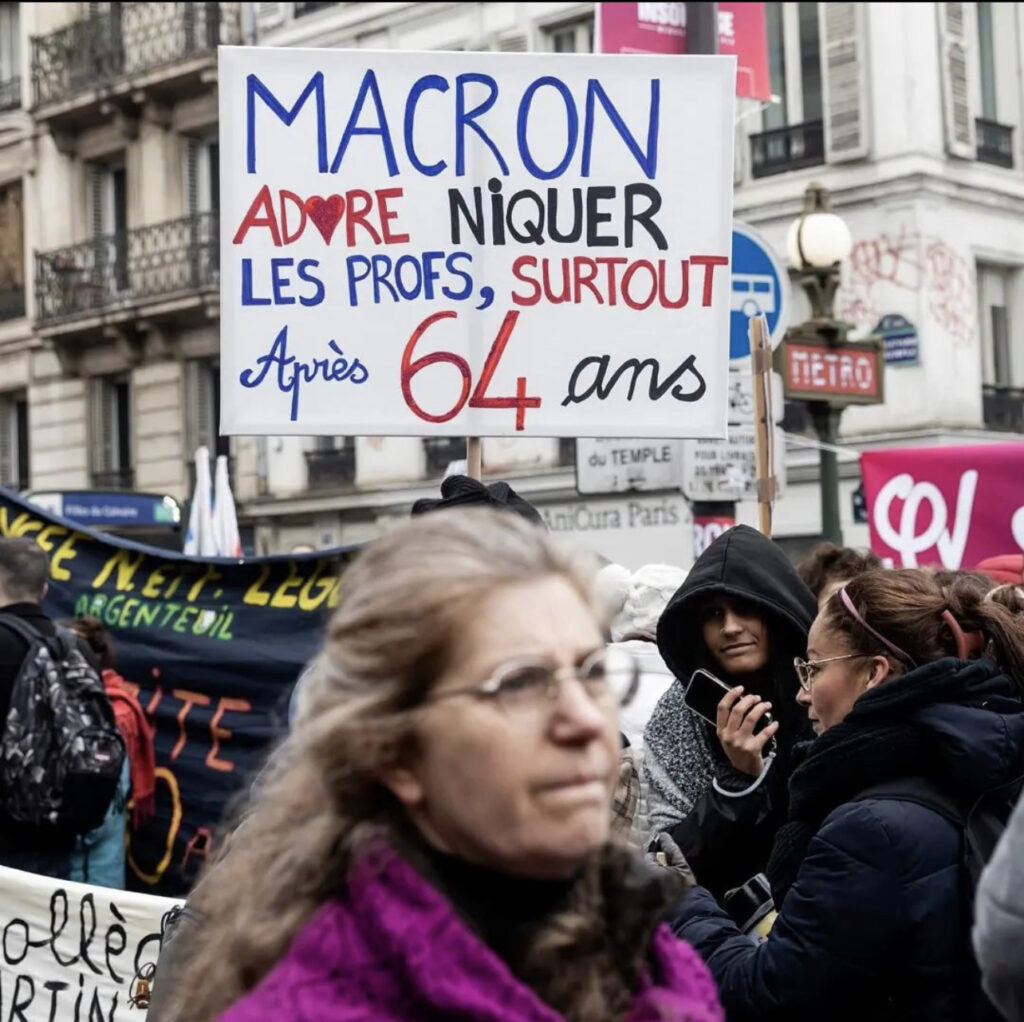After two unsuccessful no-confidence votes against French President Emmanuel Macron’s government in parliament, the path is now cleared for the implementation of his highly unpopular pension reforms, leading to renewed protests in Paris.
Last Thursday, the government resorted to special constitutional powers to push through the controversial legislation that would increase the retirement age from 62 to 64 for most workers, triggering criticism from opposing lawmakers who then called for the no-confidence votes held on Monday. The first vote was initiated by “LIOT,” a small parliamentary group that represents various small parties, and was perceived as the more likely of the two to pose a threat to the government. It fell short of the 287-majority
required to pass, receiving only 278 votes. The second vote, which was proposed by the far-right party National Rally last week, gained even less support, with only 94 lawmakers voting in favor of it.
With the government’s narrow survival in the no-confidence votes, the legitimacy crisis that Prime Minister Elisabeth Borne’s cabinet and Macron’s presidency are already facing is expected to worsen.
“The Prime Minister must step down along with her reform,” demanded Mathilde
Panot, the parliamentary leader of the communist party, after the voting
results were announced. The opposition is now planning to approach France’s constitutional council, which is the highest constitutional body in the country, to prevent some or all of the law from being passed. The council has up to a month to review any objections to the legislation. In the meantime, the public’s resentment towards the reforms continues, with protestors gathering in central Paris, clashing with police and expressing their discontent. Videos shared by CNN affiliate BFMTV showed crowds of people spontaneously marching and chanting slogans against the government, while
images also depicted rubbish bins being set on fire.
During the protests, which were held on Monday evening, there was a significant police presence throughout the capital as the demonstrators moved from one location to another. According to a police source, at least 70 individuals were detained during the demonstrations in the city.
France has one of the lowest retirement ages in the industrialized world and spends almost 14% of its economic output on pensions, which is higher than most other
countries, as reported by the Organization for Economic Cooperation.
The government argues that the current pension system, which depends on the working
population to support an increasing number of retirees, is no longer viable. Over the weekend, spontaneous protests took place in several cities with people condemning both the reform and the government’s use of constitutional Article 49.3 to pass the bill through the National Assembly without a vote. This tactic has been criticized by opponents as undemocratic.
According to the Interior Ministry, 169 individuals were detained during the protests that took place across France on Saturday. Furthermore, workers in several industries have gone on strike to express their opposition to the pension reforms. Authorities responsible for civil air traffic requested airlines to cancel 20% of their flights on Tuesday and Wednesday, and Air France cautioned passengers about potential flight cancellations in the coming days. Oil refineries and storage facilities have also been impacted, with 39% of TotalEnergie workers on strike on Monday, as per a company statement, and over 10,000 tons of garbage left on the streets of Paris due to trash collectors striking for the last two weeks. Unions have called for nationwide strikes and protests on Thursday in an attempt to bring the country to a standstill. According to the French Interior Ministry, at their peak, street protests had drawn in 1.28 million people across the nation two weeks ago.



